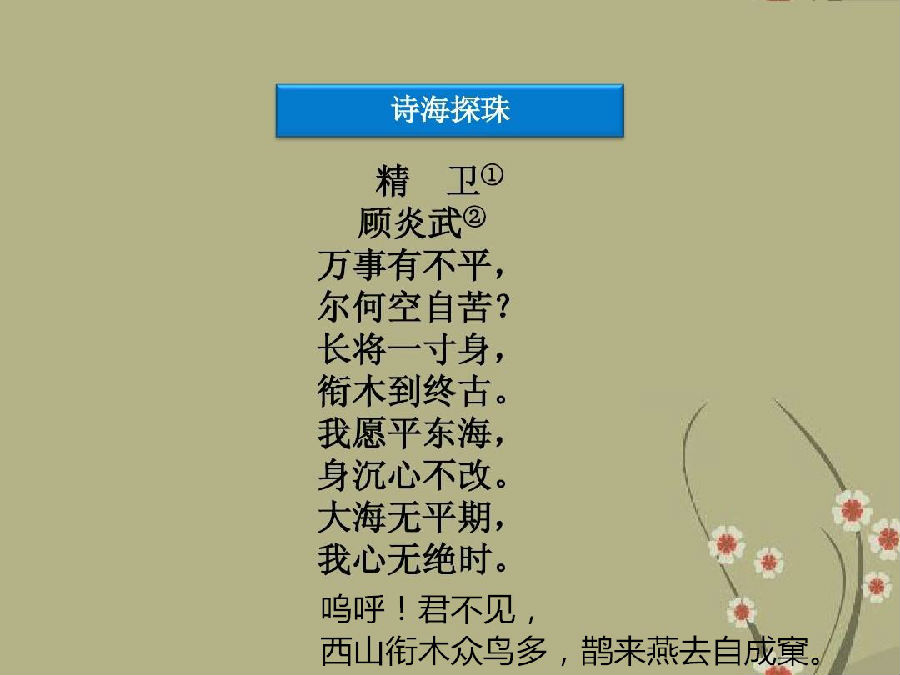(单词翻译:单击)
《精卫》是明末清初诗人顾炎武创作的一首五言古诗。此诗中作者以精卫自喻,借精卫鸟填海的精神,坚定地表示了自己舍身报国,不向清王朝屈服的决心。全诗采用对话的形式行文运笔,语言简洁明快,质朴自然,尽弃雕饰。细细读来,无论是诗中所弘扬的正义之气,还是诗歌所达到的艺术造诣,都有着强烈的感染力。

《精卫》 顾炎武
万事有不平,尔何空自苦;
长将一寸身,衔木到终古?
我愿平东海,身沉心不改;
大海无平期,我心无绝时。
呜呼!君不见,
西山衔木众鸟多,鹊来燕去自成窠。
Ching-wei(1)
Ku Yen-wu
The world is full of iniquities,
Why do you struggle so in vain,
Always urging on that tiny body,
Forever carrying sticks and stones?
"I will fill up the Eastern Sea.
My body may fail; my aim won't change.
Until the great sea's filled
My heart can't know surcease."
Alas, don't you see
The many birds with sticks on stones among the Western Hills?
Magpies come, swallows go, all building their own nests.
1. Ch'ing-wei, a mythical bird, believed to be an incarnation of the daughter of Shen Nung (the god of agriculture), who died while travelling the Eastern Sea. The bird supposedly carries sticks and stones to fill in the sea. The poem is unusual in its use of the myth and the extended development of the metaphor, implying perhaps the lack of rebellious spirit among the people.
更多精品翻译素材,敬请关注可可英语。


